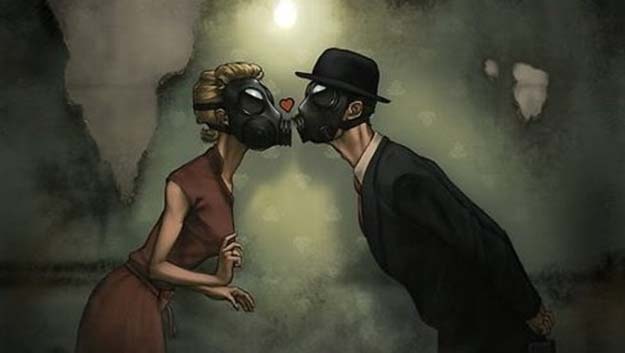
True love is an inspiration, sometimes even suffering, everyone wants to live it, and some have never felt it. This is undoubtedly one of the simplest but realistic definitions of this wonderful and mysterious dimension of human existence. This emotion is what nourishes the baby that has just been born, the one that helps us grow, and the one that makes us feel part of a social group. Love, so to speak, places us in the world.
Love chooses us.
Love songs. We all have our favorites, and in them, we try to explain what this feeling is and what it implies and above all, what produces us: happiness, misery, inspiration, passion. The lyrics tell us about unrequited love, and even their typologies: the interested love, the romantic, the eternal love, the one born of friendship. If you have already been or are in love, you know what it feels like even if you cannot express it in a definition that semantically covers all the nuances.
What is love? What does science tell us?

In love there is a certain biological component, we know it. We have all heard of that chemical storm formed by neurotransmitters such as dopamine, serotonin, and oxytocin. Now, we cannot ignore other influences, in this case, external. We talk about our culture and the weight of society as a mechanism of influence.
Love from a psychology viewpoint.
From a purely psychological perspective is an affective experience made up of a set of very specific variables: the need to connect with someone’s needs of intimacy, passion, sexuality.
Intimacy: This is the feeling that promotes the approach, connection and construction of the link.
Passion: It is desire, but it does not refer only to physical and sexual desire with all the neurochemical component that derives from it. Passion is also expressed through the admiration of the other.
Commitment: It is the express and authentic decision to build a project with the other person. It is to be faithful, and know-how to create a present and a future where common constructive activities are carried out.
The true meaning of love.
It happens to all of us. In no means of communication does the silhouette of two lesbians, a white boy and a black girl, a janitor and a lawyer or a young writer and an older man come out as “the perfect couple”.
Loving is the greatest act of bravery.
Recently, a video went viral about a man with multiple sclerosis who could not stand-up from his sickbed and these did not impede him from being present at the birth of his baby. We all shuddered and were excited.
Love is great delivery, but without losing identity. Love is sharing, learning, discovering. Love does not understand languages, colors, ideologies, ages or sexes. Love overcomes prejudices, fears, and myths.
So, if you have not yet found “your charming prince” or you think “there is no one who understands women” or that “people are too complicated”, you may be adopting the wrong perspective. Open your mind and live, love can find you in the least expected place.
What is not love: toxic love?

Toxic love is characterized by a series of behaviors of emotional dependence or control that make the couple’s relationship harmful. Members of a toxic relationship suffer day in and day out.
But ….how is toxic love?
Emotional dependence: At least one of the partners has low self-esteem and their happiness depends on the presence of the other.
Emotional codependency: Similar to emotional dependence, but the emotional codependent is addicted to the dependence of his/her partner and, therefore, to the need for help and worry about his/her well-being.
Limited social life: The members of the couple leave aside their friendships and turn purely and exclusively on each other.
Relationship Obsession: The insecurity of one of the members causes them to become obsessed, too much of the relationship.
It is irrational and unrealistic: It is a love that lives on unreal expectations, which causes tremendous frustration in the members of the couple.
Concern for change: One of the members of the couple does not tolerate that the other is doing well, largely because of his/her frustrations.
Possessive and controller: This type of love is not free to love, but one in which the members of the couple interprets that the other person as their possession and becomes controlling.
Jealousy: Attempts to control all parts of the day to day of the couple. Which makes them tremendously unhappy?
Manipulative: It is in which there is emotional blackmail from either of them.
Bad communication: Communication is not fluid and, therefore, the relationship is not cordial. The trust has been lost.
Excessive conflicts: All the above factors of toxic interactions can cause the relationship to become unbearable and conflicts will be ever-present and create very negative outcomes.
So, identify the difference between “True Love” and “Toxic (False) Love”, so your relationships allow your emotional, spiritual and material growth, and never the other way around.

